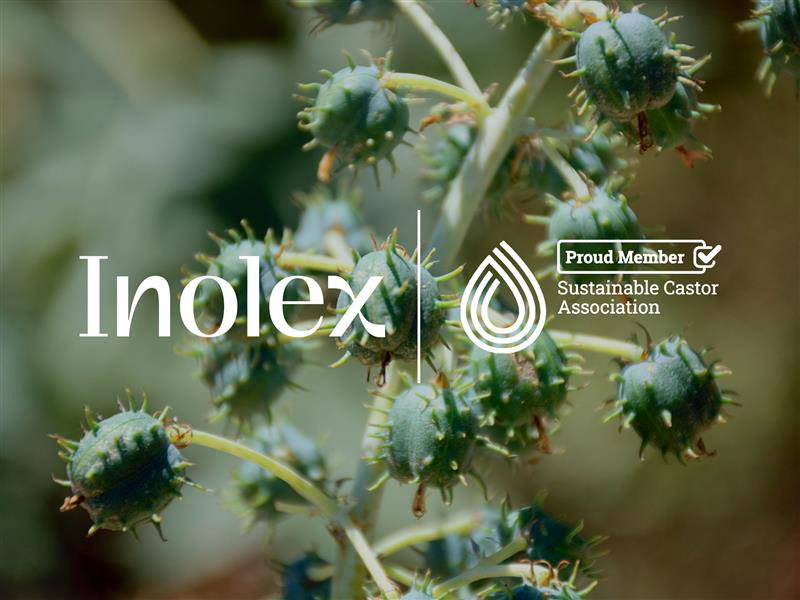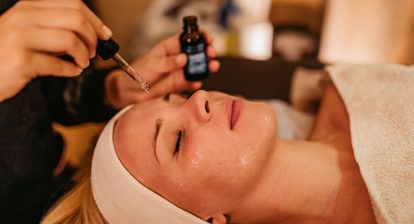Along the west coast of India, in the state of Gujarat, dozens of smallholder farmers and their families gathered with excitement. Children and adults eagerly passed around a range of materials and consumer products, including Inolex’s sustainable ingredients, all produced from local farms of responsibly grown castor.
Earlier this year, Inolex accompanied Arkema, one of the founding members of the Sustainable Castor Association (SCA), on a trip to India where over 80% of the world’s supply of castor seed is produced. As an organisation, SCA is focused on enabling sustainable castor farming to enhance the environmental, social, and economic profile of this versatile crop throughout the supply chain.
“Meeting families in the castor farming community was an incredible experience,” said Audrey Wesson, Corporate Sustainability Manager at Inolex. “It’s inspiring to see how Arkema, in addition to other SCA members, are supporting farmer prosperity, helping them reduce resource use and adopt best practices while concurrently investing in the health and education of their communities.”
As a designer of sustainable plant-based ingredients, Inolex is committed to building a more viable supply chain through the selection and support of its raw material partners. For castor, the opportunity links back to the farmers in India who are growing it.
Castor is an inherently sustainable crop, with several implicit benefits: it is naturally drought resistant with the ability to thrive in marginal soil; it can grow on rotation with staples such as cumin, mustard, and other local crops; the plant does not compete as a food source, and what is not extracted from the seed pod as castor oil is generally repurposed as fertiliser. Further, because the cash crop has a long storage life, the farmers have more flexibility and autonomy in the marketplace.
While these benefits are extensive, Wesson notes, “there are always opportunities to better support growers and contribute to improved outcomes via the environmental, social, and governance impacts of farming.”
This is where SCA comes in, helping to enable a more traceable and verified supply chain through certification, and building programs to support the livelihood of castor farmers. The castor standard code, SuCCESS, which is managed by the SCA, is the standardized certification criteria for sustainable castor. Currently SuCCESS certified supply represents about 1% of global castor oil supply and includes over 6,200 farmers and 6,000 hectares. In addition to building traction in the certified castor supply chain, the community around SCA supports farmers through educating on good agricultural practices that boost yields, create water reduction efficiencies, and improve safety and community health practices.
According to Wesson, the opportunity to help farmers develop professionally and enhance the quality of life for their families resonates deeply with Inolex’s mission to source raw materials in a socially responsible manner.
“When we look at the work that the Sustainable Castor Association members are doing, all of these actions are positively impacting farmer livelihood, local ecosystems, and the security and sustainability of the value chain,” says Wesson. “We are excited to be part of SCA and honoured to have been included in this trip. We now understand first-hand how a more sustainable castor crop starts with the farmer, is carried through our feedstock, and pulled through the supply chain all the way to beauty care consumers.”
For more information on Inolex and its responsibly sourced raw materials, please visit our website at www.inolex.com.






